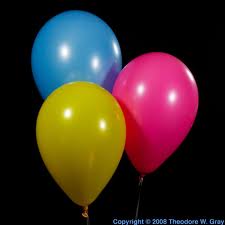记忆方法
1. hel- / heli- "sun" + -ium.
2. 因为该元素最初是在日食期间从太阳光谱中探测出来的,因此就取了这个名字,-ium 本是用于金属元素的后缀,由于该元素最初被认为是一种碱金属,所以就使用了这个后缀。
2. 因为该元素最初是在日食期间从太阳光谱中探测出来的,因此就取了这个名字,-ium 本是用于金属元素的后缀,由于该元素最初被认为是一种碱金属,所以就使用了这个后缀。
中文词源
helium 氦,氦气
来自希腊语helios,太阳。因这种元素发现于太阳光谱中而得名。
英语词源
- helium (n.)
- 1868, coined from Greek helios "sun" (see sol), because the element was detected in the solar spectrum during the eclipse of Aug. 18, 1868, by English astronomer Sir Joseph N. Lockyer (1836-1920) and English chemist Sir Edward Frankland (1825-1899). It was not actually obtained until 1895; it was assumed before that to be an alkali metal, hence the ending in -ium.
权威例句
- 1. Helium is a very light gas.
- 氦是一种非常轻的气体。
- 2. Helium is a gas used in balloons.
- 氦是一种用于气球的气体.
- 3. Unlike helium - 4, it cannot be produced by radioactive decay.
- 与氦 - 4不同之处是, 氦-3不能由放射性衰变产生.
- 4. The helium - 3 apparently became trapped when the earth was formed.
- 显然,当地球形成时,氦 - 3就被圈闭了.
- 5. After hydrogen, the atom with the simplest structure is that of helium.
- 在氢元素之后, 氦的原子结构最简单.

